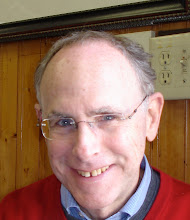Wednesday, January 21, 2009
Where politics and pop culture meet
Perhaps you saw Bruce Springsteen’s performance on the Mall in D.C. this weekend as the spectacle unfolded surrounding the inauguration of Barak Obama, the 44th president of the United States. The pre-inaugural concert represented a continuing and growing phenomenon: Springsteen, Stevie Wonder, and Beyonce, among others joined an ever-growing interconnection between pop culture and politics (check out the song America's Song by Wil.I.am and David Foster available from Oprah as a free download). For the political part, Springsteen’s presence was a demonstration of his support for working class values. Indeed, such values are consistent with the populist values of our new president. The intersection between President Obama’s political values and Springsteen’s working class values is an easy one to consume. Together their ideas create a hegemonic force that we might expect to filter through the culture. However, culture doesn’t do its work so simply. Once a big idea is put forth, it tends to take on a life of its own. In the process, it is up to individual consumers (the words consumer and citizen have in this postmodern era become somewhat synonymous) to twist and turn such ideas in ways that work within an individual's identity management. What I’m suggesting here is that ideas--political and otherwise--cannot be imposed from above. We participate in the dynamic production of culture. Not to get too romantic about it, but it is empowering to think about the role we as individuals play in the making and remaking culture.
The political presence of Bruce Springsteen is easy to understand, but his role in the pop culture industries is a little more complicated. To the point: in this day of downloading, how does an artist sell CDs? Springsteen has a new album that is going to be released next week. Several pop stars (including Springsteen) have “sold out” to Wal-Mart offering exclusive distribution rights to the retailer. Others have “sold out” to advertisers; in one instance the pop singer Sting appeared in an automobile commercial in order to hawk a new album. Yet others have decided, like Radio Head, to give their music away in hope that, in the long run, they will attract more paying customers.
Springsteen’s appearance at the pre-inauguration ceremonies was part of a managed mega-spectacle in which he will next appear during the half-time show at the Super Bowl, and he will appear on one of the upcoming awards shows, given that one of his songs is featured in the movie, The Wrestler (which, by the way, I enjoyed immensely). In addition, starting in March, he will embark on a tour with his band. It has been reported that his last tour earned over $200 million. B-r-u-c-e is big. And when a pop star is that big, she or he must do something really big in order to command our attention. In this age of inattention, perhaps the only way to “break through the clutter,” as they say in advertising, is to create spectacles or participate in spectacles that are so large, we cannot turn away. In this way, at least as pop music goes, Springsteen is a hegemonic force. Personally, I don’t buy working-class ideologies from a guy worth millions of dollars. I guess that makes me a counter-hegemonic force, although that may be a bit grandiose on my part. This blog post did, however, give me the opportunity to work in some terms we’ve been discussing in class.
Subscribe to:
Post Comments (Atom)

1 comment:
Someone commented in class on Thursday that pop culture and politics have become even more intertwined during the past presidential election and through the inauguration because Barack Obama is so, well, popular.
This post made me think of all the ways in which pop culture played a role in this past presidential election, both good and bad, with the result that pop culture and politics are now nearly inseparable.
To go along with the "America" music video we watched in class, I wondered if anyone had seen the YouTube "Yes We Can" video (http://www.youtube.com/watch?v=jjXyqcx-mYY) featuring celebrities like Wil.I.Am, Scarlett Johanssen, John Legend, Kate Walsh, and many others singing and speaking along with some of President Obama's famous speeches.
I thought this was really interesting because it's not as though these celebrities are saying anything new or voicing their own opinions about President Obama, but rather they are just repeating his words, his speeches, in a more "popular" way. This made me question the ways in which our society consumes and processes information. Ideally, we would like to think our president's speeches would not need to be set to music and repeated by celebrities in order to garner attention, but apparently since this video has over 16,000,000 views, this is not the case.
This convergence of pop culture and politics was not strictly reserved for Obama’s campaign either. Has anyone seen "The McCain-Palin Tradition" YouTube video? (http://www.youtube.com/watch?v=D2MKG2hFWao). This gem features Hank Williams, Jr. singing the Republican Party's merits at a rally during the campaign.
And don't forget Tina Fey's weekly Sarah Palin impersonations on SNL or the “I Got a Crush on Obama” song. What I am trying to say is that pop culture and politics have become so much a part of each other that it becomes hard to say what is news and what is entertainment. Has news become entertainment? Has entertainment become news? It's hard to say, but I think it's important to be aware of pop culture's relationship with politics, and the resulting effects on society.
Post a Comment